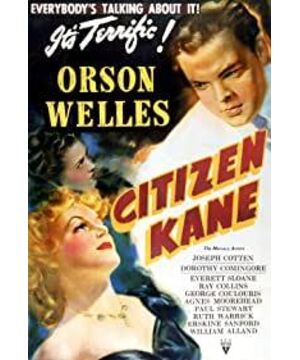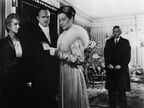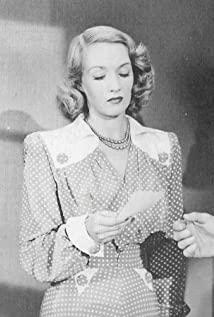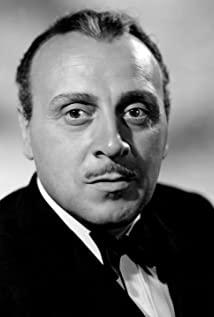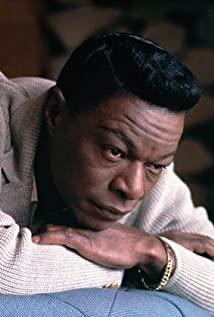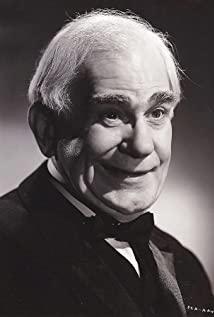The article was first published on the WeChat public account [Little Director's], please state the source for reprinting.
Film online class registration WeChat: wyy99389505
"Citizen Kane" is often praised for its outstanding script-its wit, its compact structure, the complexity of its theme, but the copyright of the script has caused considerable controversy. When the film was released, it also took place in 1970. At that time the critic Pauline Keir argued that Wells was merely polishing the finished work of Hermann Mankiewicz. Mankiewicz is a regular writer in Hollywood. When he took the original idea of "America" (later renamed "John Citizen, USA" and finally "Citizen Kane") to find Wells, Wells asked his former partner John Howe Sman assisted Mankiewicz in writing it into a movie script, preferably in an isolated place away from temptation.
Wells made a lot of changes to the first draft of the screenplay. The changes were so great that Mankiewicz condemned the film for completely breaking away from his script. He also didn't want Wells's name to appear in the screenwriter's name. So he submitted the dispute to the writers’ union. At that time, a director was not allowed to obtain the title of screenwriter unless he contributed 50% or more to the script of the movie. The union made a gesture of mediation, allowing the two to share the name of the screenwriter, but Mankiewicz was the top card.
When this controversy resurfaced in the 1970s, American scholar Robert L. Kalinger settled the lawsuit once and for all. He studied the seven main drafts of the screenplay, plus many final revised memos and other materials. Kalinger concluded that the early Mankiewicz’s manuscripts contained "dozens of pages of dull and lengthy material, which will eventually be deleted or replaced. The most telling thing is that the script The stylized wit and fluency of the film is completely absent." In a word, Mankiewicz provided the material; Wells provided the genius.
The commercial history and commentary history of "Citizen Kane" is in itself fascinating
The story of fans. Soon after the collapse of the Mercury Theatre, Raidenhua told the 24-year-old Wills
For an unprecedented contract: each film will pay him $150,000 plus
Twenty-five percent of total income. He can act as a producer in any of his films,
Director, screenwriter or star, perhaps, if he wants to, hold all four positions
can. He was under full artistic control by Enzhun, only to George Schleifer, the studio
The enlightened head is responsible.
At that time, Raidenhua was in a financial dilemma, and during its short period of existence,
in this way. The factory was built in 1928 by the financier Joseph P. Kennedy (the late President)
Father) and David Sharnov (the head of RCA, the American radio company,
It was created by the head of the National Broadcasting Corporation (NBC). Sarnov hopes that the plant can
Become the "NBC of Movies". Kennedy soon got a net profit of about 5 million U.S. dollars and retired
Out. Raidenhua struggled after a promising start, mainly
Managers are often changed, so there is a lack of continuity. Raidenhua is different from other big movies
The film company is that it does not have consistent characteristics and special styles.
Sarnov and his new partner, Nelson Rockefeller, want Raidenhua
Produce complex and progressive films, but they found artistic value and box office success
It is not easy to unify. Rockefeller and Charnoff very much agreed that Schleifer hired Will
Si’s idea, their reason is that they want to be able to produce both quality and profitable
The film, of course only the one that just won on Broadway and radio
child prodigy.
When Wells came to Hollywood in 1939, people were extremely dissatisfied with him. right
For most directors, if they are allowed to direct an A-level film before the age of 35
Film, that's already lucky. But this man is just a young man, and
Outsiders, they were given full autonomy the first time they came out. When he saw
At Raidenhua’s production facility, he said a witty remark: “This is what a child earns.
The biggest electric train toy I've ever been to. "The most routine people in film companies see
Come, Wells is pretentious, pretentious, and arrogant. His public mockery of the film club
Did not bring him any benefit: "Hollywood is a golden suburb,
For those who play the ball, the gardener, the mediocre and the complacent star
It is perfect. "He obviously felt the joy of saying this, but he was young for himself
A great price was paid for his indiscreet wit.
Almost from the beginning, the production of "Citizen Kane" caused controversy. as a
The master of publicity, Wells made people curious about the filming of the film. This video
It was filmed under "top secret" conditions. There are many circumstance about the identity of the protagonist
Rumors, when Hirst Syndicate gossip columnist Luela Parson
When he heard that the film was about her boss’s private life, the Parsons was in
With Hirst's blessing and full cooperation, a struggle was launched for the film.
When the film was nearing completion, Hirst's struggle became more fierce. He threatened
Film companies say they want to create a series of scandals unless the film is released before it is released.
destroy. His pawn, MGM’s Louis B. Mayo (the most powerful company
People) proposed that if Raidenhua is willing to destroy the negatives, he will compensate Raidenhua’s success
This, plus a small profit. Hirst intimidates other studios not to be in their shadows
The movie was booked in the courtyard, and his newspaper also attacked Wells as a Communist, and
Implying that he was a man who evaded military service (Wells was rejected for physical reasons
Absolutely perform military service). Raidenhua was in trouble, paralyzed by indecision. Wells
He threatened that unless the film was released, he would sue. Finally, the studio
Decided to take a risk.
With very few exceptions, "Citizen Kane" received enthusiastic reviews. "New York
Bosley Kraut of The Times called it "one of the greatest films in film history
(If not the greatest film)". It was awarded by New York Film Critics
The Best Picture Award in 1941 was a good year for American cinema. It gets nine
Nominated for the Academy Awards, but as long as the name of Wells is mentioned at the awards meeting, he is
Hush. It is worth noting that the only gold statue won by the film is for the script. precious
Lynn Kayle hinted that this was intended to be a regular expression of Mankiewicz and Hollywood.
A gesture of support.
Incredibly, "Citizen Kane" failed at the box office.
The beginning of the end of Paul's in Hollywood. When his second masterpiece "The Abeson Everyone"
When the "Family" failed to please the audience in several quiet previews, Raidenhua put it
Cut from a length of 131 minutes to 88 minutes, and add a false reunion
Tail, but it also failed at the box office. Soon thereafter, Raidenhua was in administrative management
Once again they changed hands, and both Wells and Schleifer were driven away.
American movies in the 1940s gradually became darker and darker, no matter the subject or the photo
Movies are like this, partly because of the huge influence of "Citizen Kane". In those ten years
The most important style is film noir (FILM NOIR), which is adapted to that time
Generation style. Wells’ style continues to develop towards noir films, especially
It's films like "Miss Shanghai" and "Evil Contact". Toland died
In 1948, at the age of 44, this was an irreparable loss for American films.
Film network face-to-face class registration WeChat: wyy99389505
View more about Citizen Kane reviews


